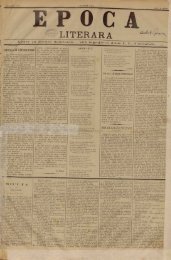- Page 7:
Rampton Court
- Page 15 and 16:
Rampton Court BY WILLIAM HOLDEN HUT
- Page 17 and 18:
PREFACE A word, with all apologies
- Page 19 and 20:
PREFACE VII the privileges which th
- Page 21 and 22:
INTRODUCTION " Iam never merry when
- Page 23 and 24:
CONTENTS CHAPTERI THE BUILDINGS AND
- Page 25 and 26:
CONTENTS XIII Queen Mary and Knelle
- Page 27 and 28:
CONTENTS XV PAGE characteristics of
- Page 29 and 30:
LIST OF ILLUSTRATIONS By HERBERT RA
- Page 31 and 32:
HAMPTON COURT CHAPTER I THE BUILDIN
- Page 35 and 36:
WOLSEY'S BUILDING 3 ing, it is scar
- Page 37:
-5** "a ■* I? ll. &
- Page 40 and 41:
6 HAMPTON COURT the bricks intermin
- Page 42:
8 HAMPTON COURT There is no better
- Page 46:
10 HAMPTON COURT his "Anecdotes of
- Page 50 and 51:
12 HAMPTON COURT Henry VIII., is as
- Page 52:
14 HAMPTON COURT The hall is entere
- Page 56:
16 HAMPTON COURT VII So, leaving th
- Page 60 and 61:
18 HAMPTON COURT If the court, when
- Page 62 and 63:
20 HAMPTON COURT interiors can hard
- Page 65 and 66:
GREAT GALLERIES 21 eminently suitab
- Page 67 and 68:
WREN'S PLANS 23 whom England has pr
- Page 69 and 70:
UNCOMPLETED WORK 25 shows how minut
- Page 71 and 72:
CHARACTERISTIC MERITS 27 Wren's wor
- Page 73 and 74:
EARLY HISTORY 29 King and Parliamen
- Page 75 and 76:
HISTORICAL MEMORIES 31 dwelling-pla
- Page 77 and 78:
WOLSEY'S GREATNESS 33 Cardinal-mini
- Page 79 and 80: WOLSEY'S LIFE 35 which Wolsey built
- Page 83 and 84: FESTIVITIES 37 satin paned, and cap
- Page 85 and 86: FESTIVITIES 39 To whom the Cardinal
- Page 87 and 88: ANNE BULLEN 41 passed they forth th
- Page 91 and 92: FRENCH AMBASSADORS 43 Rooms already
- Page 93 and 94: WOLSEY'S HOUSEHOLD 45 friends sent
- Page 95 and 96: COSTLY BANQUETS 47 all others were,
- Page 99 and 100: REVELRY 49 with ladies, some on hor
- Page 103 and 104: WOLSEY'S DEATH 51 they were English
- Page 105 and 106: HENRY'S AVARICE 53 there, they were
- Page 107 and 108: QUEEN JANE 55 sorrow for the most f
- Page 109 and 110: PRINCE EDWARD 57 The young Prince o
- Page 111 and 112: TAYLOR'S SONNETS 59 skein of red si
- Page 113 and 114: QUEEN ELIZABETH 61 Y Though Elizabe
- Page 117 and 118: QUEENLY STATE 63 hair she wore a la
- Page 121 and 122: THE PALACE IN 1598 65 " Hampton Cou
- Page 123 and 124: ELIZABETH'S DEATH 67 The Palace whi
- Page 125 and 126: JAMES I. 69 and say little of relig
- Page 127 and 128: CHARLES I. 71 decisive step in the
- Page 129: HOSTILE AGITATIONS 73 the King in t
- Page 133 and 134: HIS LAST DAYS 77 have been satisfie
- Page 135 and 136: CROMWELL'S TENANCY 79 was his custo
- Page 139 and 140: COURT SCANDALS 81 when he doth not
- Page 141 and 142: PETER LELY 83 VIII At Hampton Court
- Page 143 and 144: LELY'S "BEAUTIES" 85 ladies." x If
- Page 145 and 146: LELY'S "BEAUTIES" 87 latter is the
- Page 147 and 148: WILLIAM OF ORANGE 89 does your Maje
- Page 149 and 150: CLAIMS TO GREATNESS 91 which he ach
- Page 151 and 152: AS DIPLOMATIST 93 certain unconscio
- Page 153 and 154: PRIVATE CHARACTER 95 that the issue
- Page 157 and 158: FAULTS AND VICES 97 withheld for ye
- Page 159 and 160: DE WITT MURDERS 99 of York's childr
- Page 161 and 162: GLENCOE MASSACRES 101 January 1692
- Page 163 and 164: AS KING 103 Parliament had declared
- Page 167 and 168: AT HAMPTON COURT 105 was not virtuo
- Page 169 and 170: KNELLER'S "BEAUTIES" 107 her husban
- Page 171 and 172: DEATH OF MARY 109 which the "Beauti
- Page 173 and 174: GEORGE I 111 Queen continued her ki
- Page 177 and 178: DEFOE ON THE PALACE 113 royal party
- Page 179 and 180: CHAPTER III THE PARKS AND GARDENS i
- Page 183 and 184:
UNDER HENRY 117 In the front of thi
- Page 185 and 186:
UNDER ELIZABETH 119 II Elizabeth lo
- Page 187 and 188:
UNDER CROMWELL 121 " upon pillars o
- Page 191 and 192:
UNDER CHARLES II 123 moved to Bushe
- Page 195 and 196:
UNDER WILLIAM III 125 is what is no
- Page 197 and 198:
DEFOE'S TESTIMONY 127 formal garden
- Page 201 and 202:
MEMORIALS OF MARY 129 in the aid of
- Page 203 and 204:
BROAD WALK 131 their most striking
- Page 207 and 208:
UNDER GEORGE I 133 Privy Garden. Un
- Page 209 and 210:
UNDER GEORGE II 135 Andpolyanthusof
- Page 211 and 212:
THE GREAT VINE 137 VI A charming wr
- Page 215 and 216:
CHAPTER IV HAMPTON COURT AND THE CH
- Page 217 and 218:
HENRY'S ADDITIONS 141 privy chamber
- Page 219 and 220:
ASSOCIATIONS 143 The proportion of
- Page 223 and 224:
THE QUEEN'S CHAPEL 145 very happily
- Page 225 and 226:
THE CONFERENCE 147 the Church, and
- Page 227 and 228:
THE CONFERENCE 149 nine Articles as
- Page 229 and 230:
THE CONFERENCE 151 which agreeth as
- Page 231 and 232:
JAMES'S OPINION 153 the new King wa
- Page 233 and 234:
i CHAPTER V THE ART COLLECTIONS The
- Page 235 and 236:
TAPESTRIES 157 the days of Wolsey.
- Page 237 and 238:
WOLSEY'S TAPESTRIES 159 thousand ma
- Page 241 and 242:
WOLSEY'S TAPESTRIES 161 Left-handsi
- Page 243 and 244:
WOLSEY'S TAPESTRIES 163 The same in
- Page 245 and 246:
HENRY'S TAPESTRIES 165 in the inven
- Page 247 and 248:
HISTORY OF ABRAHAM 167 Mortlake. In
- Page 249 and 250:
GEORGE I.'S TAPESTRIES 169 patterns
- Page 251 and 252:
THE PICTURES 171 IV Scott when he w
- Page 253 and 254:
TUDOR GROUP 173 skill in thepaintin
- Page 255 and 256:
ELIZABETHAN PICTURES 175 charming d
- Page 259 and 260:
ELIZABETH'S PORTRAIT 177 which more
- Page 261 and 262:
STEWART PICTURES 179 are many other
- Page 263 and 264:
CHARLES I.'S COLLECTION 181 gave th
- Page 265 and 266:
ANDREA MANTEGNA 183 Charles it was
- Page 267 and 268:
ANDREA MANTEGNA 185 order, and on o
- Page 269 and 270:
ANDREA MANTEGNA 187 know it, of the
- Page 271 and 272:
ANDREA MANTEGNA 189 Gonzaga, in the
- Page 273 and 274:
ANDREA MANTEGNA 191 masterpiece tho
- Page 277 and 278:
VENETIAN SCHOOL 193 Jerome Bosch
- Page 279 and 280:
LORENZO LOTTO -■95 though injured
- Page 281 and 282:
ALBRECHT DURER 197 Psyche, by L. Gi
- Page 283 and 284:
GEORGIAN AGE 199 sea-fights, Willia
- Page 285 and 286:
BENJAMIN WEST 201 to say, not a sin
- Page 287 and 288:
BENJAMIN WEST 203 and human, prepar
- Page 289 and 290:
CHAPTER VI LITERATURE AND GOSSIP IN
- Page 291 and 292:
POPE 207 Among all the century's de
- Page 295 and 296:
"RAPE OF THE LOCK" 209 river floods
- Page 297 and 298:
POPE AND MARMONTEL 211 calls it in
- Page 301 and 302:
RIVER FRONT 213 Doubtless they sat
- Page 303 and 304:
LORD HERVEY 215 they must simper an
- Page 305 and 306:
HERVEY AND POPE 217 wrote Gay; and
- Page 307 and 308:
HERVEY AND CAROLINE 219 cold-hearte
- Page 309 and 310:
HERVEY'S MEMOIRS 221 stuffing; the
- Page 311 and 312:
COURT SCANDALS 223 rooms on the gro
- Page 315 and 316:
THE PALACE DESERTED 225 of George I
- Page 317 and 318:
ITS ENGLISH CHARACTER 227 English c
- Page 321 and 322:
LATER RESIDENTS 229 representation)
- Page 323 and 324:
PRESENT CARE 231 observe that the p
- Page 325 and 326:
MEMORIES OF THE PAST 233 choir, its
- Page 327 and 328:
ITS ATTRACTION 235 one would expect
- Page 329:
ITS FUTURE PICTURED 237 new, some o
- Page 332 and 333:
240 Naseby, 71; Sir Thomas Herbert'
- Page 334 and 335:
242 INDEX JamesII., 89 Janssen, Cor
- Page 336:
244 Villiers,Elizabeth, 97, 130 Vil

















